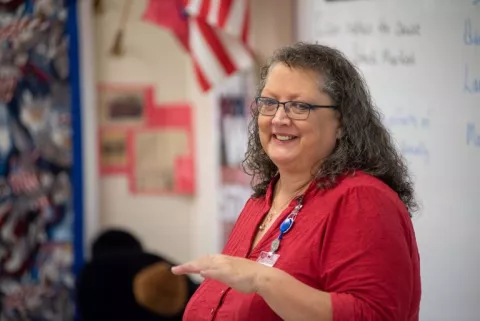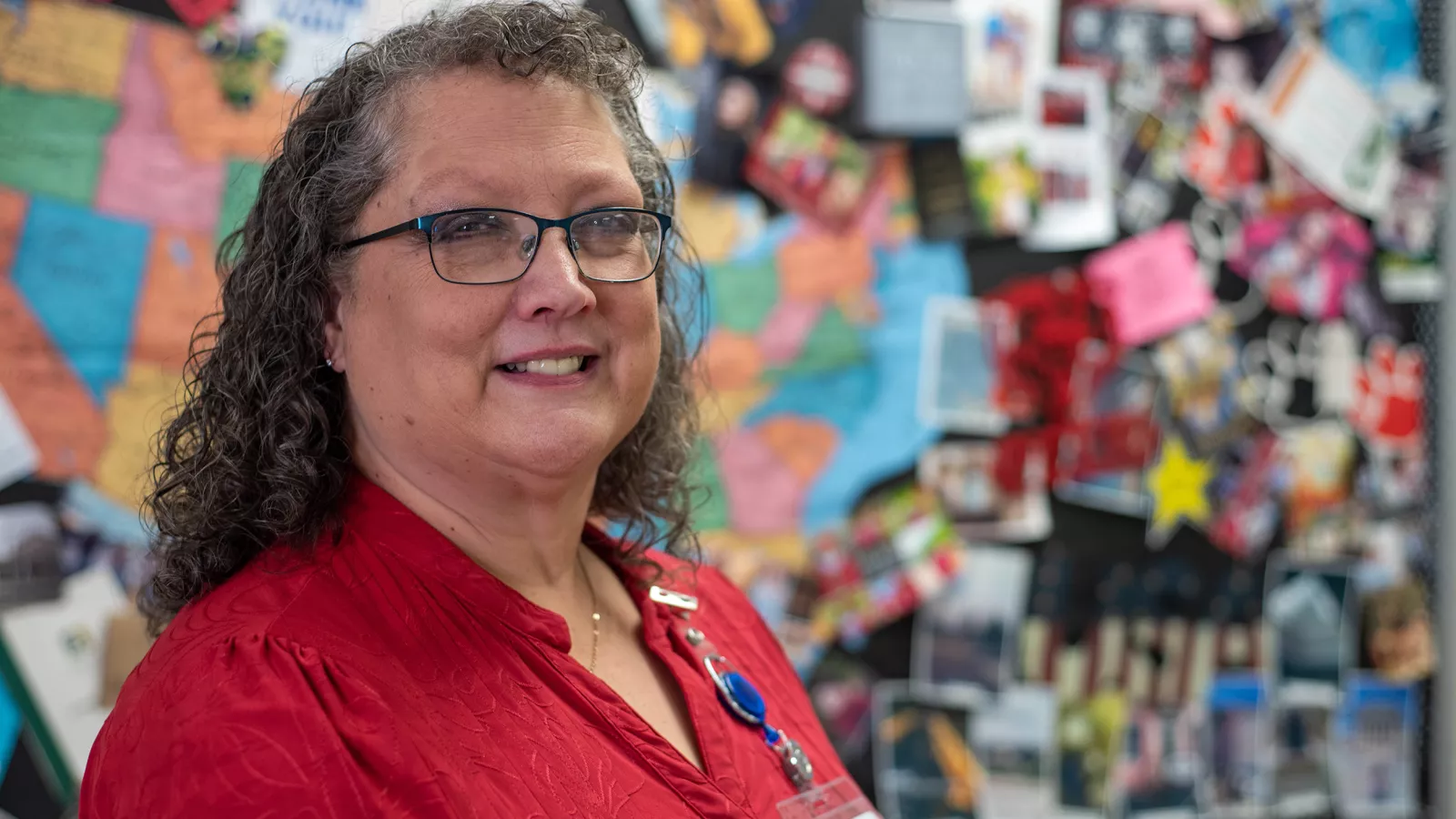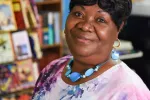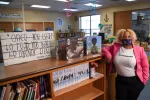The walls of Wendy Peer’s classroom are covered in political ephemera, from hand painted donkeys and elephants to fabric featuring a bald eagle and flag pattern. The back wall could easily blend in with the rest of the décor, but the political maps, campaign flyers and policy platforms are the product of Peer’s AP Government students who just finished a primary election of their own.
“This year the advanced placement college board offered a new curriculum in project-based learning, and it blew me away,” she said. “Students had to run their own campaign. We have media that write articles. Interest groups had to write endorsement questions, and party leaders had to create their platforms and plan what states they needed to worry about in the general election.”

Students were assigned roles based on their interests, and the candidates who lost their primaries are now “swing states” that must be brought on board by the winners.
“We’re actually getting into the meat of how this stuff works,” Peer said. “I could lecture all day long and I’ve done that. I could have them take notes out of the textbook and I’ve done that. But man, getting their feet wet, they’re really having a good time with this application, and I feel like they are so much more engaged.”
Peer is encouraged to see that engagement, because many people don’t know, or understand how our government is supposed to work. In a time of increasing polarization, that knowledge is more important than ever.
“If you know how government is supposed to work, you’ll know when it’s not,” she said. “When we say something about gridlock or not getting along, the students all kind of chuckle because they know... they know the adults are fighting right now. They think [politicians] are crazy. It’s chaotic.”
She takes care to teach her students about the system without taking sides.
"I don’t want them to think that liberal is a bad word; I don’t want them to think that conservatives are bad,” she said. “It’s just a different view of government. I have children in here who are Republican, I have children in here who are Democrat -- and their families are staunch whichever party -- and so I try to show respect for both and show the differences.”
In addition to the Government class, Peer also teaches American History, putting her squarely in the sights of certain politicians seeking to bring culture wars into the classroom and limit the topics she can discuss.
“I wish they would just leave our curriculum alone and let us teach,” she said. “We’re college educated. We know what we’re talking about. I’m doing what you trained me to do, and I’m not hurting our kids with what I’m teaching.”
Children deserve an honest and accurate education that enables them to learn from the mistakes of our past to help create a better future. Unfortunately, certain politicians want to whitewash parts of our history so they can control a political narrative. Peer wishes lawmakers would drop the talking points and really look at what is happening in Arkansas’s classrooms.
“It’s really frustrating because I’m like, ‘Have you ever been in the classroom? Have you ever come in to see what we actually teach, or are you just going on what you hear?’” she said. “I try to teach American history as balanced as possible, but you know -- as much as I love our country -- we do have some mistakes we’ve made.”
She says it’s important to celebrate and talk about America’s successes, but an accurate accounting of our nation’s history can’t only include the rosy parts.
"We need to teach that, but we also need to teach the other information,” she said. "If we don’t teach them the discrimination, the segregation, the lynching, the church bombings, the terrorism attacks, if we don’t teach that then it’s going to be acceptable to another generation and we’re going to be right back where we were. For the first time in my life I'm actually afraid of that happening if we don’t teach American history, as-is.”
Despite the coordinated attack on curriculum, Peer isn’t afraid to speak her mind about what’s best for students. She knows the Fort Smith Education Association and AEA have her back.
“You’re never alone in this whole crazy turmoil of public education,” she said. "We have a voice, and we give you a voice, and if you ever have any issues, we walk beside you through them. We’re there for you to listen to and if you need us to go with you to admin, we’ll go to the administration with you.”
Peer is currently serving as Vice President of FSEA, and says the local is in a rebuilding phase. Just before COVID-19 hit, the local school board decided to stop recognizing the association for collective bargaining and to instead use a personnel policy committee model.

"We had negotiated so many good policies for the teachers and so many good policies for all the employees,” she said. “They would listen to us, and we would compromise back and forth, and now all of a sudden we couldn’t do that anymore.”
She said the association had a bit of an identity crisis and had to work to make sure educators knew an end to collective bargaining wasn’t the end of the organization.
"That was such a big part of what we campaigned on and told everybody about and tried to get support for, it was like, ‘Who are we now?’” she said. “Everybody thought we dissolved, thought we no longer existed, so we were losing some members there for a while.”
New FSEA President Ryan Gray took the helm just before COVID-19 struck, upending education as we know it and causing many teachers to again realize the value of collective voice.
“What we do now is we advocate,” Peer said. "We’re reworking to be a stronger association and our membership is back up, through Covid, there’s been a lot of reasons people have joined back up. We’re getting our board back together, trying to get our building representatives trained and up and running and then trying to start offering the professional development and other little conferences we used to offer.”
She feels fortunate to be in FSEA leadership to help guide the local during this challenging time.
“We took a dip, a hit that was a tough one to come back from,” she said. “But I think we are on the way up, and we’re going to see great things in this district and this area.”





